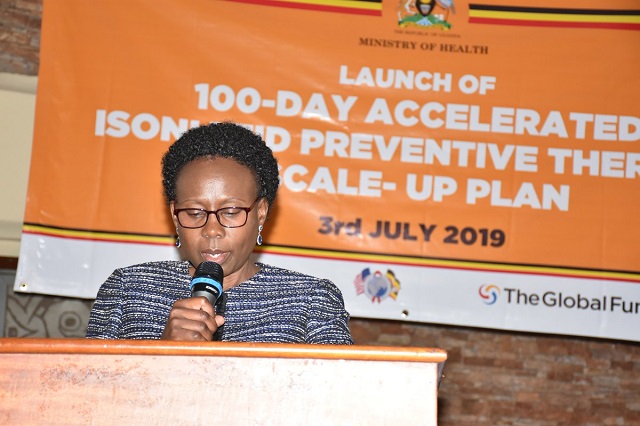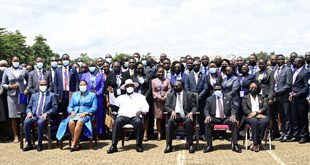
Kampala, Uganda | THE INDEPENDENT | More than 40,000 Tuberculosis infections are not treated. This is according to a 2017 study carried out by the Health Ministry in partnership with World Health Organisation-WHO and Global Fund.
Dr Stavia Turyahabwe, the programme manager of the National TB programme attributes the high number of undetected cases to bad health seeking habits and lack of knowledge about the disease.
“Some people never go to see a doctor. They rely on treating themselves even when they do not know what they are treating.”
Dr Jane Ruth Aceng, the Minister of Health, says the high number of people that do not receive treatment expose thousands of Ugandans to the disease unknowingly.
Dr Aceng adds that even those who are on treatment never complete their treatment.
Salome Nakibuuka, a resident of Kawempe says she was diagnosed with Tuberculosis in 2015 after she had a persistent cough that lasted three months.
“It begun as a cough. When I was told I had TB, I was shocked. I could not believe it. Up to today, I don’t know how i was infected with TB”, Nakibuuka says.
The TB prevalence in Uganda stands at 253 per 100,000 people with the highest burden being reported in urban areas with 504 persons per 100,000 having the disease compared to rural areas with 370 persons per 100,000.
Data from the Ministry of Health indicates that one in every 100 newly diagnosed TB patients and 12 in every 100 previously treated TB patients are estimated to have Multiple Drug Resistant TB.
Dr Turyahabwe says that most people do not complete the strict TB treatment regimen which leaves many of them to re-infections that are at times spread.
“TB treatment is supposed to last nine months but some patients get tired and stop taking the medicine at four months. At the end of the day, people get new infections that even become resistant to drugs.”
Norah Owagara, a researcher with CPAR Uganda that carried out studies about TB in Northern Uganda says that Uganda needs to invest more in being able to diagnose the disease.
“More investment is needed in TB to buy better equipment. In Northern Uganda where the burden of TB is high, smear microscopy that is not adequate is still being used. We need to buy GeneXpert Machines.”
Investigations carried out by CPAR reveal that the number of GeneXpert machines in the country is still few. The investigation revealed that the national average ratio of the machines to the population stood at 1:353,000. One GeneXpert machine on average costs 119 million shillings.
*****
URN
 The Independent Uganda: You get the Truth we Pay the Price
The Independent Uganda: You get the Truth we Pay the Price


